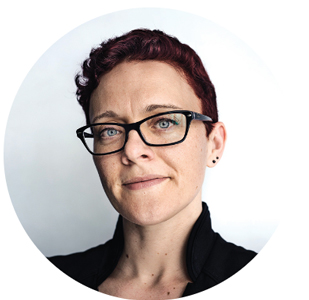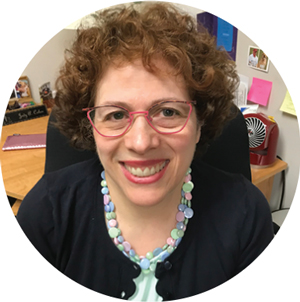 Timothy Baland
Timothy Baland
timothy@balandlaw.com
The most useful technology, at least from my perspective, is fourfold: video meetings, document-signing software, case management software, and cloud-based file storage. I also have a virtual receptionist and multiple virtual paralegals. You have to take the standard ethical precautions and make sure that any system that you want to incorporate into your practice is secure, but otherwise I find that the use of technology has drastically improved my practice.
When the covid-19 pandemic hit, attorneys had to shift paradigms—to pivot hard and fast to new ways of providing service and doing business. For me, that meant having more video and telephone meetings with clients. I can literally count on the fingers of one hand the number of in-person client meetings I have had since approximately March 2020.
What amazed me most was the resiliency and innovation shown by attorneys during the pandemic. Attorneys quickly adopted new ways of doing everything—drive-through parking lot signatures, video depositions and mediations, remote client meetings. In many ways, the pandemic gave attorneys the kick in the pants that we needed to adopt new technologies to assist us in our practices.
Part of the reason I started the video roundtable discussions through the Minnesota State Bar Association was to help other attorneys become more familiar with video and other technology. We were all stressed out, and nobody knew much of anything. We needed a forum in which to talk and share ideas, and the roundtables provided such a forum.
Court hearings by way of video are a true blessing, because it makes appearing for a court hearing much easier and much more efficient, both for the attorney and for the client. The client does not have to take half a day off of work—maybe only an hour. From the attorney’s perspective, you can appear in multiple counties throughout the state in the same day, depending of course on the length of the hearing.
I would be remiss not to mention the lowly telephone, because I have a lot of telephone consultations with clients and prospective clients. But if you were to visit my office, you would not see a physical telephone anywhere. Rather, I use VOIP technology for all my phone calls.
So what is my short list? In no particular order:
1. Zoom for video meetings with clients, prospective clients, and depositions;
2. MyCase for case management software and remote document-signing;
3. Dropbox for file storage;
4. everything Google for the rest; and
5. Cloud-based applications, such as bankruptcy software, to assist me in my practice.
Timothy Baland is an attorney who helps landlords with evictions and all other aspects of landlord-tenant law and represents debtors in bankruptcy. Tim is also a mediator who helps people resolve disputes without going to court.
 Jess Birken
Jess Birken
Birken Law Office
jess@birkenlaw.com
Just imagine never typing this sentence again: “Unfortunately, none of those times work for me, what about Monday at 1pm or Wednesday at 4:30pm?” You know what I mean—the inefficient, aggravating process of emails between you (or your staff) and your clients, attorneys, potential clients, vendors, etc. in the name of setting up a meeting. Wasting all that time drives me crazy.
I tried a bunch of solutions, but it was Acuity Scheduling that CHANGED my lawyer-life! Acuity Scheduling (acuityscheduling.com) is an online scheduling tool. You connect it to your calendar(s), set up appointment types, set any limitations or forms, and then you’re off to the races. Need to get a time scheduled with a potential client? Send them a link! Acuity displays only the times that I’m free on my calendars, so there’s no chance of double booking, which is an easy mistake if left to do it myself. Want to limit your available hours? It does that too. Here’s how much value I get out of this one tool…
Networking: I’m mostly networking virtually now (obviously!). There’s a link for that. In the confirmation email and calendar invite, friends get a clickable link to either my Zoom room or to call me. It’s a seamless experience.
Lunch or happy hour on location? Different link. Now, this may seem crazy, but I give up control and tell them I’m coming from the northeast side of Minneapolis and let them choose the time and place. You might be more of a control freak; that’s okay! You could list five locations in a drop-down menu if you want instead. I use limits to prevent happy hours during weeks when I have my kids. And keep two days blocked for client work.
Client meetings: This is a big one. As a part of my legal subscription service, nonprofit clients can schedule short phone consults with me. Instead of trying to field unexpected calls or deal with an overloaded inbox, my clients know all they need to do is click a link to schedule a call and leave a note saying what it’s about. This assures clients they have my undivided attention. Happy clients = fewer problems.
Limited scope engagements: Acuity made switching from free to paid consults or one-off small projects so easy. Guess what makes it painless? Doing all the payments and paperwork at the time of booking! Clients schedule it, sign a limited scope engagement letter and pay for the consult all in Acuity. After booking, Acuity sends an email I’ve customized with a link to submit their intake information. All ethically air-tight, of course!
Package offering? Same deal. If you have a flat fee service tied to at least one meeting, you can use Acuity to do the paperwork and billing. Simple. I love it so much I created a little e-book about it. Grab it at hackyourpractice.lawyer/acuity-gift.
Jess Birken is the owner of Birken Law Office, where she helps nonprofits solve problems and get back to their mission. Jess also helps other lawyers change their practices through her Hack Your Practice project.
 Cresston Gackle
Cresston Gackle
cdg@cresstonlaw.com
I am always on the lookout for tools that integrate tasks and seamlessly transfer information between applications. As a solo practitioner, I track and bill my own time and keep my own monthly accounting, including trust accounting. I love the fact that Clio, a web-based subscription service, connects directly with LawPay, a credit card processing service. This allows me to easily track my time, including managing files and individual billing rates; generate full bills with trust accounting; and provide clients with a link to pay their bills and refill their retainers by credit card on LawPay. LawPay ensures that all credit card fees are properly routed to my business checking account. This not only saves an immense amount of time and energy in my practice—it also helps me meet my clients’ expectations for a modernized, automatic, and easy billing process.
For managing my calendar and daily tasks, I rely on the modernized to-do list offered by Things 3, a mobile application. Things 3 automatically merges in a summary of my daily calendar and lets me schedule tasks and sub-tasks for completion. I set weekly and other regular reminders for case reviews and client check-ins. Once I complete a task, it’s satisfying and motivating to mark it complete with a checkmark. The app also keeps a searchable log of all completed and scheduled tasks so I can easily check when I finished a project. These tools all help me maintain diligence, efficiency, and marketability as a solo attorney.
Cresston Gackle is a solo practitioner of juvenile and family law and a part-time public defender of children in child protection and delinquency matters. Before entering solo practice, he was a law clerk in the 4th Judicial District for Judge Kathleen Sheehy.
 Jody Cohen Press
Jody Cohen Press
jody@presslawoffice.com
When covid-19 turned the world upside down, Zoom became my most useful legal technology tool. In the early days of the pandemic, for clients who didn’t want to come to the office, Zoom was a way to meet and continue preparing estate plans. (Will signings, however, could not be done on Zoom—so they took place in cars in parking lots and bank drive-throughs.) Zoom also allowed probate and guardianship hearings to take place. An added benefit, especially in Hennepin and Ramsey counties, was that Zoom eliminated the need for attorneys and clients to drive downtown, find and pay for parking, and navigate the courthouse. Zoom also eliminated the need to drive in inclement weather as well as the need to re-schedule hearings when clients were out of town.
The pandemic also forced me to find new ways to get recorded real estate documents and record new deeds. RecordEase is a real estate document retrieval system. It eliminated the need to go to county recorder offices or a hire a courier to get documents. Simplifile is an online document recording system that allows deeds to be recorded within minutes of signing.
Jody Cohen Press is an estate planning and probate attorney in St. Louis Park. She practices law with her husband, Steve Press.